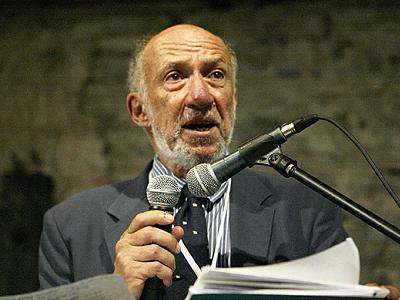
An Introduction by Gabi Weber and Gilad Atzmon
http://othersite.org & gilad.co.uk
UN Human Rights Committee, July 2011: General Comment on Article 19 – Freedoms of Opinion and Expression
Just a few days ago we came across the following from the UN Human Rights Committee – an independent body tasked with supervising compliance with the International Covenant on Civil and Political Rights (ICCPR).
The document, from the Office of the High Commissioner for Human Rights (OCHR), dates from July 2011 and concerns freedom of opinion and expression. It states that "anti-blasphemy laws and restrictions on criticism of governments are incompatible with existing norms and that free expression is essential for the protection of human rights."
This report, entitled General Comment, is an interpretation of the 1966 International Covenant on Civil and Political Rights (ICCPR) – a covenant with 167 state signatories, signed and ratified also by Germany, France, Switzerland and other European countries.
Crucial to the committee´s comments are the so-called “memory laws,” which it defined as "laws that penalize the expression of opinions about historical facts” and sees these laws as “incompatible with the obligations that the covenant imposes on States parties in relation to the respect for freedom of opinion and expression.” and goes on to say that, “Freedom of expression is a necessary condition for the realization of the principles of transparency and accountability that are, in turn, essential for the promotion and protection of human rights” .
In spite of the significance of this document, it was not reported by any media outlet.
Reading it makes it abundantly clear that governments and political organizations that prohibit the elementary right to present alternative historical accounts are in clear violation of the United Nations’ position on freedom of opinion and expression. This obviously applies to Germany, France and Austria but it also applies to many 'progressive' organizations (Jewish and Non-Jewish) and individuals that are engaged in relentless harassment campaigns against dissent voices within the (Jewish and Non-Jewish) communities and beyond.
The document states clearly that "It is incompatible with paragraph 1 to criminalize the holding of an opinion. The harassment, intimidation or stigmatization of a person, including arrest, detention, trial or imprisonment for reasons of the opinions they may hold, constitutes a violation of article 19, paragraph 1.", and in the footnotes are references to many relevant cases.
Think about it.
Article 19
1. Everyone shall have the right to hold opinions without interference.
2. Everyone shall have the right to freedom of expression; this right shall include freedom to seek, receive and impart information and ideas of all kinds, regardless of frontiers, either orally, in writing or in print, in the form of art, or through any other media of his choice.
3. The exercise of the rights provided for in paragraph 2 of this article carries with it special duties and responsibilities. It may therefore be subject to certain restrictions, but these shall only be such as are provided by law and are necessary:
(a) For respect of the rights or reputations of others;
(b) For the protection of national security or of public order (ordre public), or of public health or morals.
Article 20
1. Any propaganda for war shall be prohibited by law.
2. Any advocacy of national, racial or religious hatred that constitutes incitement to discrimination, hostility or violence shall be prohibited by law.
GE.11-45331
Human Rights Committee
102nd session
Geneva, 11-29 July 2011
General comment No. 34
Article 19: Freedoms of opinion and expression
General remarks
1. This general comment replaces general comment No. 10 (nineteenth session).
2. Freedom of opinion and freedom of expression are indispensable conditions for the
full development of the person. They are essential for any society.(1) They constitute the
foundation stone for every free and democratic society. The two freedoms are closely
related, with freedom of expression providing the vehicle for the exchange and
development of opinions.
3. Freedom of expression is a necessary condition for the realization of the principles
of transparency and accountability that are, in turn, essential for the promotion and
protection of human rights.
4. Among the other articles that contain guarantees for freedom of opinion and/or
expression, are articles 18, 17, 25 and 27. The freedoms of opinion and expression form a
basis for the full enjoyment of a wide range of other human rights. For instance, freedom of
expression is integral to the enjoyment of the rights to freedom of assembly and association,
and the exercise of the right to vote.
Click to read more ...
 Wednesday, January 9, 2013 at 11:01AM
Wednesday, January 9, 2013 at 11:01AM  Gilad Atzmon
Gilad Atzmon ![]()











